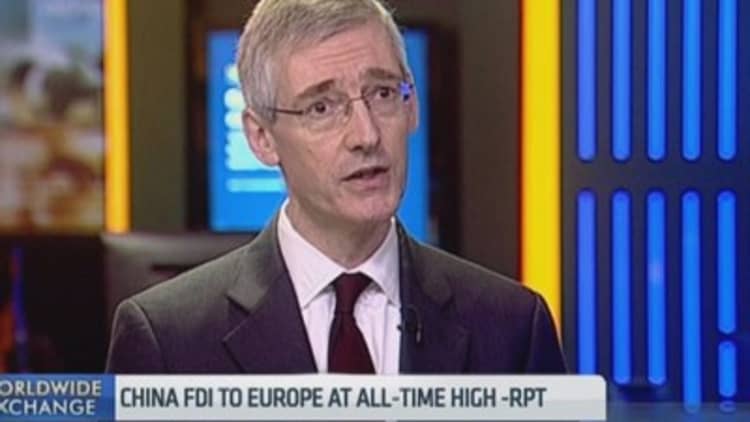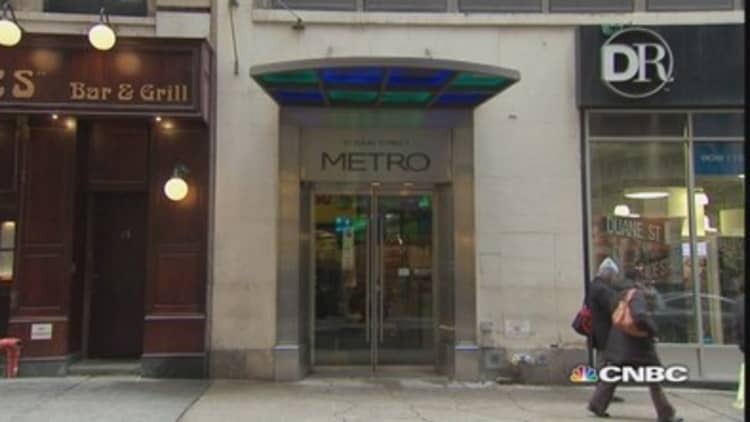Australia plans to impose a new tax on foreign property buyers after Chinese investment in Australian real estate soared 60 percent last year, in the latest sign of a gathering international backlash against wealthy Chinese property investors.
The move, which came after locals complained about being priced out of the housing market, follows the introduction of similar, more punitive, taxes in Hong Kong and Singapore aimed primarily at discouraging the flood of mainland Chinese money into those markets. Governments in all three locations say that the new taxes are not directed at any single nationality.
In the past year, mainland Chinese buyers have become the biggest single group of foreign investors in residential property in the US, UK and Australia, as well as in key cities in other western countries, according to real estate brokers.
In the year to March 2014, mainland Chinese buyers accounted for nearly a quarter of all foreign purchasers of residential real estate in the US, spending about $22 billion, compared with $12.8 billion a year earlier, according to the US National Association of Realtors. Canadians, the second biggest group, spent $13.8bn in the same period.
Most apartments being built by Chinese developers in prime markets such as New York, London and Sydney are also being sold directly to mainland Chinese buyers.

The UK, Australia, Canada and the US are the most popular destinations for Chinese real estate investment. Australia had the strongest growth in inbound real estate investment from China in 2014, with an increase of more than 60 percent, according to estimates from property consultancy Knight Frank, based on official Australian data.
In London, Chinese buyers accounted for 11 percent of all property transactions above £1 million in 2014, up from 4 percent in 2012, according to Knight Frank. The comparable figure for Russian buyers, the second-largest group, was 5 percent — a proportion that has hardly changed for several years.
Total value of investment in overseas real estate by Chinese institutional investors has also ballooned from $600 million in 2009 to about $15 billion last year, according to Knight Frank estimates.
Read MoreChinese developers keep chin up even as prices cool
Jin Guo, head of Asia at Cordea Savills, a real estate investor, says: "It is actually very difficult to properly trace volumes of individual Chinese property purchases abroad since most people do not register with any government agency and they get their money out of China using informal channels.
"But . . . we have seen estimates from the US, Australia and UK showing 20-30 percent of foreign buyers are from China."
Analysts say the rush of Chinese money into western property markets is the result of a complex combination of factors.
The enormous overcapacity and recent slowdown in China's domestic property market has pushed many wealthy people to diversify their investments into offshore assets.
This has been made easier and more attractive by the collapse in property prices in many western markets that followed the 2008 financial crisis and the huge rise in Chinese prices over the past decade.

"The domestic Chinese market is very unstable, full of bubbles and depends on government policy," says Cathy Zhang, senior sales consultant at Ausunland Group.
Prices for prime residential real estate in cities such as Los Angeles and Miami are roughly 25 percent lower than in Shanghai.
Government restrictions, worsening pollution and decrepit health and social services have also led many Chinese to buy property in more developed countries they may wish to eventually emigrate to. Add to that the anxiety generated by the anti-corruption campaign launched by President Xi Jinping two years ago.
Although few in the industry will openly discuss it, some acknowledge privately that fear among Chinese officials and business people has been a big factor in the surge of investment into western real estate. The Chinese government has stepped up efforts to repatriate corrupt officials and recover offshore assets, including luxury foreign properties.
More from the Financial Times:
Brazil hit by Petrobras downgrade
Daimler welcomes Apple into car market
Isis brutality in Iraq reawakens Sunni resistance
"The ongoing purge and the fear of losing everything if you are caught up in an anti-corruption investigation or a political fight has convinced many in China to diversify to places with clear and stable legal and political environments," says one figure at a large property advisory company.
Capital controls restrict Chinese residents from exchanging more than $50,000 in foreign currency each year, which would make it almost impossible for a Chinese person to buy a prime residential property abroad.
This means effectively that all property purchases by Chinese nationals overseas are technically illegal.
Questions over the provenance of much of the Chinese money streaming into cities such as New York, London and Sydney will also add to growing resentment among locals who feel they are being priced out of the market.
Analysts expect the backlash to spread as Chinese investment continues to rise and politicians face increasing pressure to act.
The Australian government has proposed "application fees" of A$10,000 (US$7,800) for every A$1 million that foreign buyers spend on Australian property.
It has also pledged to enforce an existing law that prohibits non-residents from buying existing — rather than newly built — housing. Offenders could be fined up to 25 percent of the value of the property and forced to sell it.
The UK government has made a series of tax changes in the past three years aimed at discouraging wealthy foreign buyers from the London housing market. The crackdown focused particularly on homes bought using offshore companies, which make it hard to trace a property's ownership.

